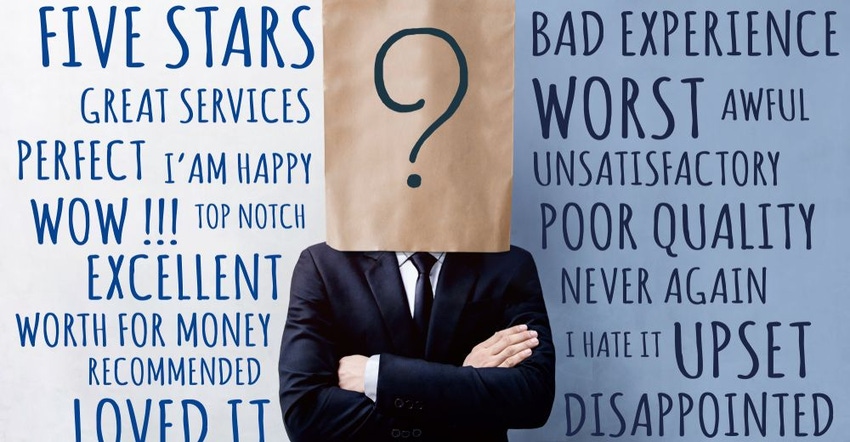How Emulating Netflix Can Help Self-Storage Operators Bolster Their Business Reputation
Consumers empowered by social media and online reviews means reputation management is a cost of doing business. A digital-streaming giant may have laid the blueprint for how self-storage operators can improve their public perception.

The old adage that consumers’ perception forms their reality is particularly prickly during the Digital Age. How self-storage operators are perceived by prospects is a combination of what you project from your physical and online presence, the consistency and tone of your brand messaging, and the narrative shaped by current and former tenants. Mashed together, all of these areas influence your business reputation.
If you had to take a stab at it, how would you rate your business reputation against other self-storage operators in your market? How do you stack up against other retail service providers? These are important questions to ponder because when it comes to making purchasing decisions, today’s consumers are increasingly picky about where their money goes.
In a recent report published by the Reputation Institute, a reputation-management firm, Netflix is the most reputable company in the United States, jumping 23 spots year over year to take the No. 1 ranking. The placement is based on more than 230,000 individual ratings on more than 140 nominated companies gathered in January and February, according to Marketing Charts.
Rounding out the top five were The Hershey Co., Whirlpool Corp., Rolex and McCormick & Co. While it may not seem unusual to have a digital-streaming service and entertainment-media company land in the top spot, consider that the others are a candy maker, appliance manufacturer, high-end watchmaker and a spice manufacturer. None besides Netflix are considered particularly cutting-edge, although one could certainly make a case for Rolex since the brand has long been considered the pinnacle of wrist watches.
The point is that you don’t have to operate in a sexy or tech-centric business space to build a meaningful and lofty reputation. Apple, Amazon, Disney, Microsoft and Nike all failed to make the U.S. top 10, though Disney and Microsoft did land in the top 10 of the global ranking, in which Rolex and Netflix placed first and ninth, respectively.
Amazon, by comparison, ranked as the 54th most reputable brand in the U.S. Though the company continues to dominate e-commerce and reshape how Americans shop, it hasn’t established “a strong connection between its corporate values and those of the general public,” according the Reputation Institute.
The opposite appears to be true for Netflix. In various other marketing studies, Netflix was tops for simplest experience, ranked fifth in the U.S. for intimacy, and placed third among the most-loved U.S. brands. In 2018, it was also deemed the best word-of-mouth brand in America.
During a time in which Millennials now outflank Baby Boomers in numbers and Generation Zers are graduating from college, buying power is shifting firmly into the hands of those who rely most heavily on mobile technology and online reviews. These same self-storage prospects place enormous value on a positive customer experience.
In the same way that businesses have spent decades adopting the customer-service strategies of Disney and The Ritz-Carlton, it may be worth studying how Netflix goes about its business and emulating parts of its model. After all, its reputation has been built in part on its customer experience (ease and intimacy) and brand strength (consumer love/word of mouth).
In my mind, these five areas dramatically affect the reputation of any self-storage operation:
Internet presence. Like it or not, where you rank in a Google search influences perception and reputation. So does Web design and function. This also includes online reviews and how you manage the narrative others are creating about your operation.
Customer experience. Once they find you, prospects and tenants will judge you based on the conveniences you offer (from online reservations to smartphone-enabled services), your level and tone of engagement (in person, on the phone and via online reviews), the breadth and responsiveness of your service, and how you maintain and run your operation.
Consistency. Web performance, in-person interactions, curb appeal, brand messaging, etc., should be consistent on a daily basis and across all platforms. Reliability and meeting or exceeding customer expectations can build or break a reputation.
Value proposition. Price is only one metric that influences a rental, and most research suggests it’s low on the priority list. How you convey and demonstrate your value through property features and benefits, customer service, community relations, corporate culture, etc., will influence how your business is perceived.
Loyalty. If you achieve high marks in the first four areas, loyalty is likely to follow. Active referral programs and word-of-mouth advertising aren’t going out of style anytime soon. In the Digital Age, brand champions not only influence others to rent from you, they can also help your search ranking.
While it may seem like reputation management is another burden to add to a growing list of operational objectives, the truth is you’ve been performing some form of it since you’ve been in business. The difference today and going forward is there is a very public layer of transparency that all businesses must bear. Social media and online reviews are empowering for consumers, but they can also be affirming for companies that take care in building a reputation, solidifying and maintaining it.
About the Author(s)
You May Also Like







